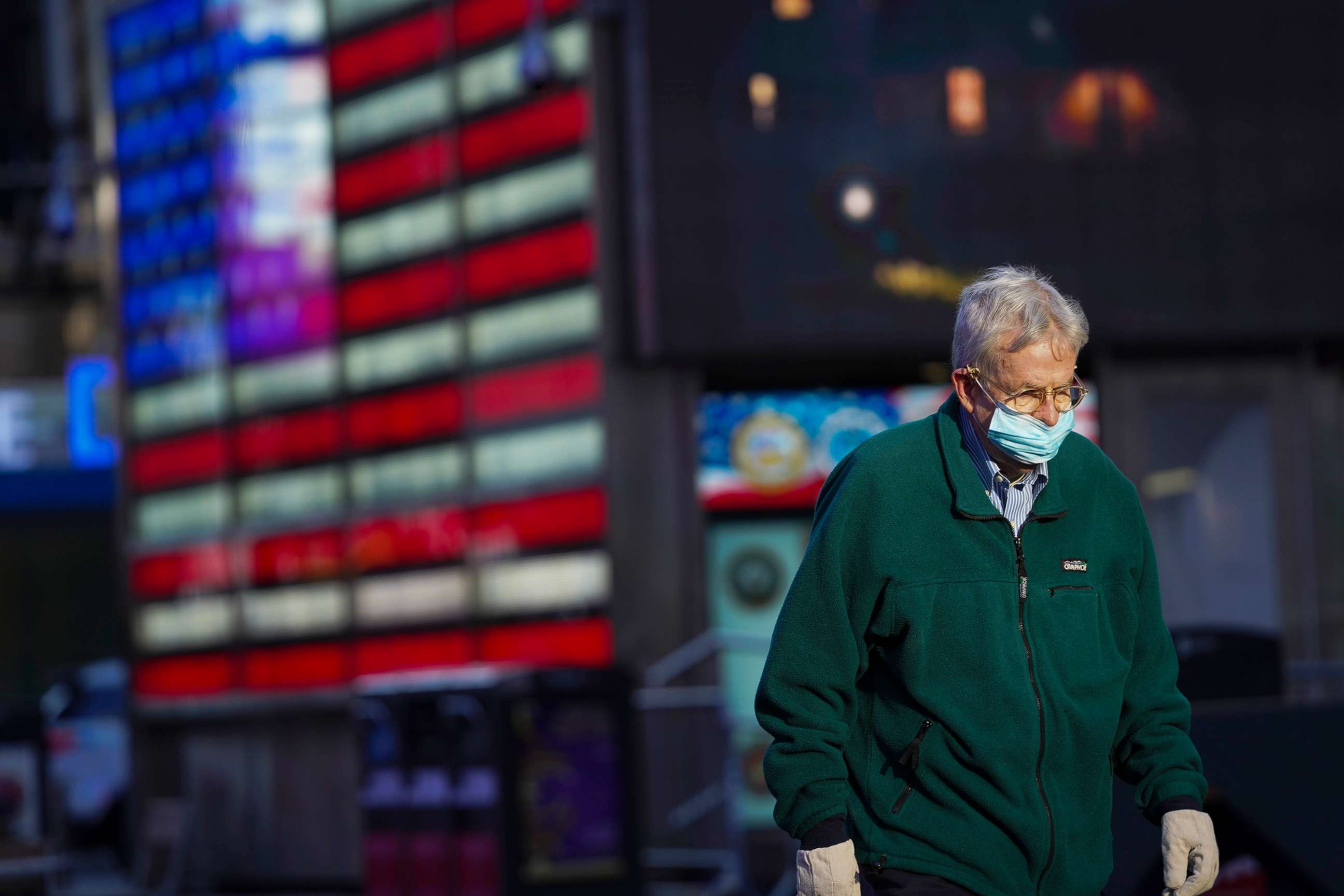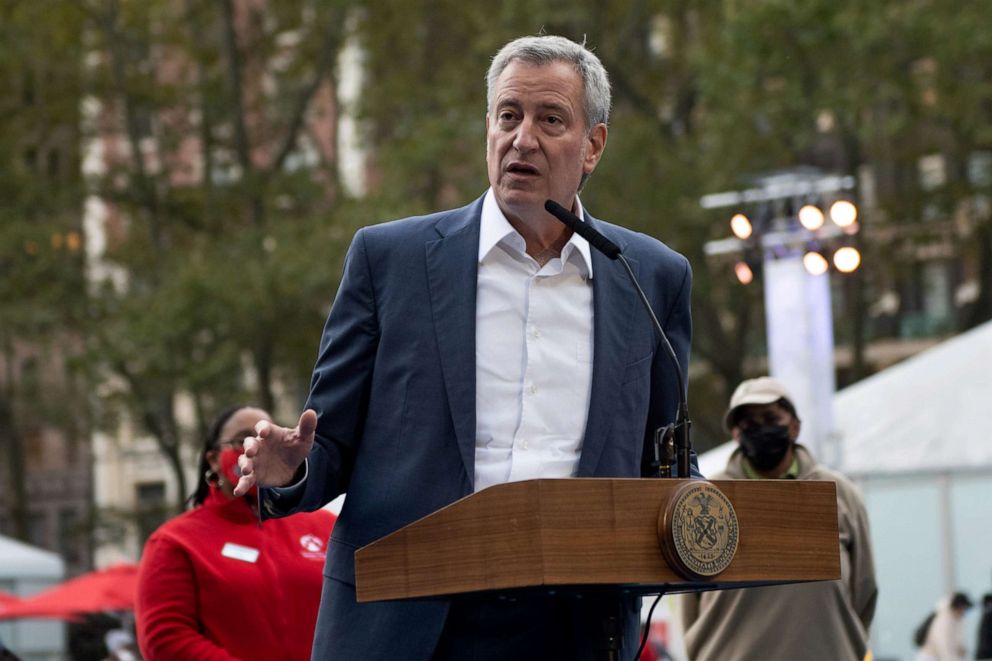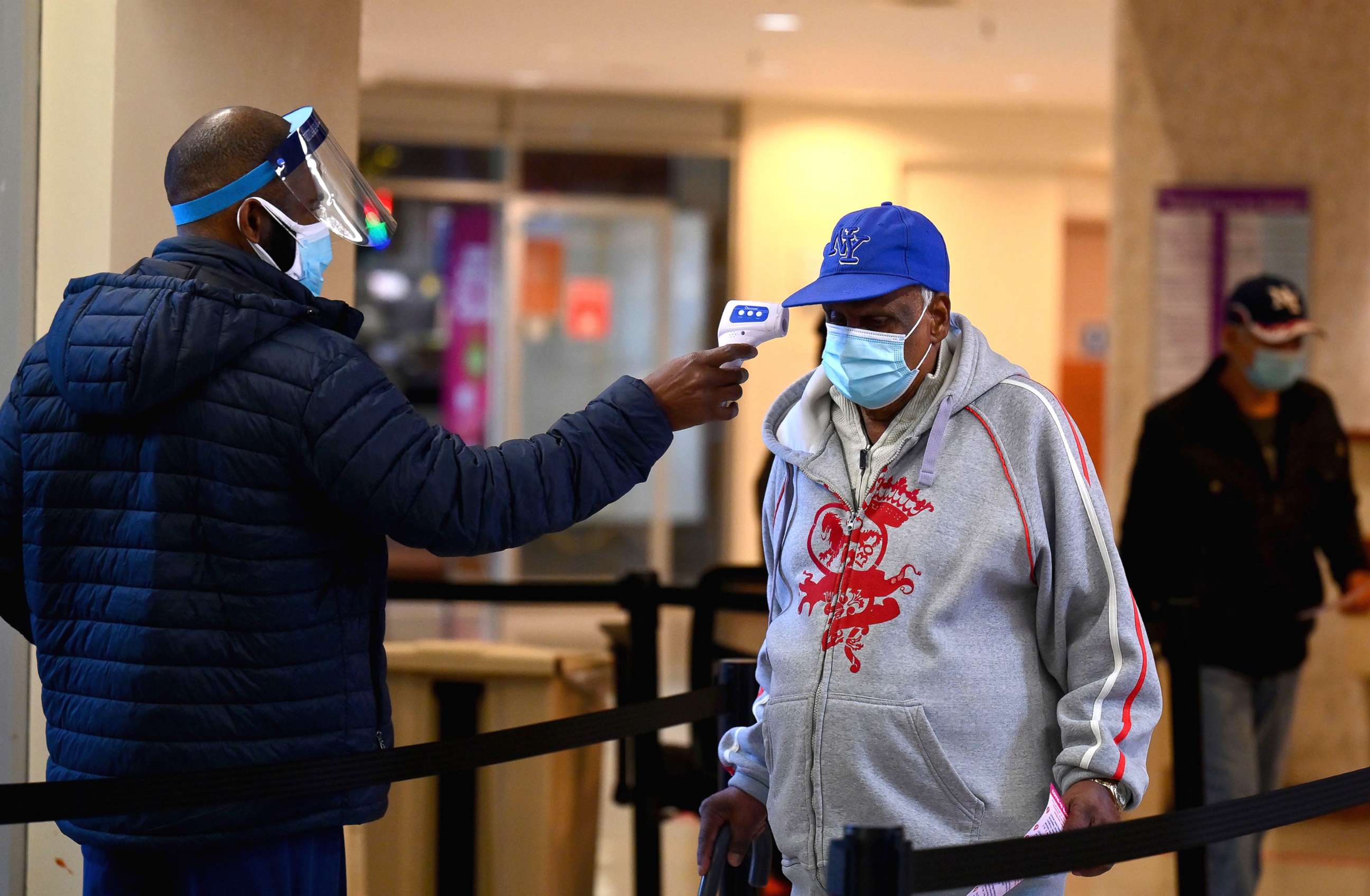New York City advises elderly to remain at home as COVID cases grow
New York is also facing a blood shortage.
New York City officials are advising senior citizens to avoid as much nonessential travel outside of their households as the number of coronavirus cases and hospitalizations jump.
The city's Health Department issued an advisory Tuesday that elderly and New Yorkers with underlying health conditions should "limit activities outside the home, except leaving home to travel to work or school, or for essential purposes including medical care, grocery shopping or pharmacy necessities."
Mayor Bill de Blasio and Health Commissioner Dave Chokshi said the coronavirus situation is getting worse and cases are expected to increase in the coming weeks. Chokshi said the city's hospitals have more than 1,100 COVID-19 patients.
"That's twice as many as were hospitalized less than three weeks ago and the highest number since early June," he said during the mayor's Tuesday briefing.

Chokshi said the advisory is specifically directed at New Yorkers over 65 since they have a higher risk of infection.
New York City, which was once the epicenter of the virus, has seen its seven-day average of new cases surge from 622 on Nov. 1 to 1,437 on Nov. 28, according to the city's Health Department. During that same period, the seven-day average of new hospitalizations increased from 46 to 112, according to the health data.
Mayor de Blasio said New Yorkers need to come together and adhere to these precautions, along with the other health guidelines such as mask wearing and social distancing, if they want these numbers to come down.
"If we are not successful in driving down these numbers soon, of course, there's the real possibility of much greater restrictions. So we have to do this work individually if we want to avoid those restrictions," he said at the news conference.

The mayor also called on New Yorkers to address another health crisis gripping the city: a blood shortage. De Blasio said the city's blood supply is down to three days when the ideal blood supply is seven days.
"There haven't been corporate blood drives and blood drives at colleges and ... government offices," he said. "[These] things that used to make such a difference."
The mayor said the city is looking for at least 25,000 New Yorkers to donate blood this month, and the New York Blood Center is increasing its incentives for interested donors.

The center is offering prizes, such as a VIP tour of the Empire State Building, New York Jets tickets and gift certificates, for donations during the month.
"We're going to keep giving you updates to remind you how we're doing and how much we need. But everyone, you're going to feel so good after you give blood," de Blasio said. "You're going to feel good, because you're going to feel in your heart that you did something so good for your fellow New Yorker."
What to know about the coronavirus:
- How it started and how to protect yourself: Coronavirus explained
- What to do if you have symptoms: Coronavirus symptoms
- Tracking the spread in the U.S. and worldwide: Coronavirus map




